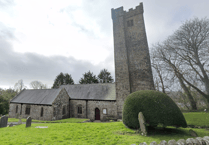The chief executive of a leading Pembrokeshire holiday resort has said that Wales risks becoming less attractive to visitors if a ‘tourism tax’ is introduced.
The Bill that will give local authorities the option to introduce a small visitor levy in their area - has today (November 25) been introduced by the Welsh Government’s Finance Secretary Mark Drakeford.
The Visitor Accommodation (Register and Levy) Etc. (Wales) Bill proposes that people staying overnight in Wales and enjoying everything the country has to offer will pay a small charge. The money raised will support local tourism activity and infrastructure.
The introduction of the legislation marks the delivery of a key Programme for Government commitment and will help to invest in the future of Wales as all visitors staying overnight would contribute to the preservation of the country’s beauty and heritage.
It would provide local communities the opportunity to generate additional revenues. If all Welsh local authorities choose to introduce a visitor levy, it is estimated it could generate up to £33m a year.
The levy would be set at:
• 75p per person per night for people staying in hostels and on campsite pitches.
• £1.25 per person per night for those staying in all other accommodation types.
Commenting on the plans for the tourism tax, William McNamara, Chief Executive of Bluestone National Park Resort remarked: “While we have slightly more clarity on the proposed visitor levy, including the £1.25 overnight charge, there remain concerns about its potential impact on the tourism sector.
“Wales risks becoming less attractive to visitors, especially families, who may view this as an additional cost in an already competitive UK market – particularly as this levy is not being introduced in England. The flexibility for councils to raise charges in the future also adds an element of uncertainty that must be carefully managed.
“At Bluestone, we are proud to offer sustainable, luxury breaks that celebrate Wales’ unique heritage and natural beauty.
“We recognise the need to invest in local infrastructure and services, but it is crucial that this levy is implemented thoughtfully and transparently to support both visitors and businesses – especially for those already navigating economic challenges.
“Tourism is the backbone of communities like Pembrokeshire, and reinvestment in rural areas can undoubtedly bring benefits.
“However, the success of this levy will depend on clear accountability for how funds are used and a commitment to ensuring Wales remains a welcoming and competitive destination for all,” he added.




